Mulching might just be the secret weapon you’ve been overlooking in your quest for a lush, vibrant landscape. Whether you’re a seasoned landscaper or a beginner, understanding the benefits of mulching can revolutionize how you care for your property. In this blog post, we’ll explore the many advantages of mulching, provide practical tips, and share a real-life success story that will inspire you to incorporate mulch into your gardening routine.
What is Mulching?
Before we jump into the benefits, let’s clarify what mulch is. Mulch refers to a layer of material applied to the surface of soil. This material can be organic, like wood chips, straw, and leaves, or inorganic, such as gravel and plastic sheeting. Each type of mulch has unique properties that cater to different gardening needs.
Types of Mulch
- Organic Mulch: Includes materials like bark, compost, and grass clippings. These break down over time, enriching the soil with nutrients.
- Inorganic Mulch: Consists of materials like stones, landscape fabric, and rubber. These are more permanent solutions and are often used for decorative purposes or in areas where soil improvement isn’t a priority.
Understanding the varying properties of these mulch types helps in selecting the right kind for your specific landscaping needs.
10 Benefits of Mulching
Retaining Soil Moisture
One of the primary benefits of mulching is its ability to retain soil moisture. By acting as a barrier, mulch reduces the evaporation of water from the soil surface. This is particularly beneficial in hot climates or during dry spells, ensuring your plants have consistent moisture levels.
- Water Conservation: Less frequent watering is required, conserving water and reducing your utility bills.
- Healthier Plants: With steady moisture levels, plants can thrive without the stress of water scarcity.
- Sustainability: Conserving water is not only good for your garden but also for the environment.
Controlling Soil Erosion
Mulch plays a crucial role in controlling soil erosion. By covering the soil, mulch protects it from the impact of raindrops and strong winds, which can wash away or degrade the soil.
- Erosion Prevention: Protects against soil loss, especially on slopes and in areas prone to heavy rainfall.
- Nutrient Retention: Keeps valuable topsoil and nutrients in place, ensuring your plants receive the nourishment they need.
- Landscape Stability: Helps maintain the structure and stability of your garden landscape.
Regulating Soil Temperature
Another benefit of mulching is its ability to regulate soil temperature. Mulch acts as an insulating layer, keeping the soil cooler in the summer and warmer in the winter.
- Temperature Control: Protects plant roots from extreme temperature fluctuations.
- Extended Growing Season: By maintaining a stable soil temperature, mulch can extend the growing season for certain plants.
- Frost Protection: In colder climates, mulch can shield plants from frost damage.
Suppressing Weed Growth
Weeds can be a gardener’s worst enemy. Mulch helps suppress weed growth by blocking sunlight from reaching weed seeds, preventing them from germinating.
- Weed Control: Reduces the need for chemical weed killers and manual weeding.
- Healthy Competition: Minimizes competition for nutrients, water, and light, allowing your plants to flourish.
- Cleaner Garden: Keeps your garden looking tidy and well-maintained.
Enhancing Soil Fertility
Organic mulches, in particular, enhance soil fertility as they decompose. This process adds valuable nutrients back into the soil, promoting healthy plant growth.
- Nutrient Addition: Enriches the soil with essential nutrients like nitrogen, phosphorus, and potassium.
- Improved Soil Structure: Enhances soil texture and structure, making it easier for roots to penetrate and access nutrients.
- Microbial Activity: Encourages beneficial microbial activity, which further improves soil health.
Protecting Plant Roots
Mulch serves as a protective layer for plant roots. It shields them from harsh weather conditions and mechanical damage, such as from lawnmowers.
- Root Protection: Safeguards roots from temperature extremes, dehydration, and physical damage.
- Stronger Plants: Healthy roots lead to stronger, more resilient plants.
- Stress Reduction: Reduces plant stress, leading to better growth and productivity.
Improving Aesthetics
A well-mulched garden not only functions better but also looks more appealing. Mulch can enhance the visual appeal of your landscape by providing a clean, uniform appearance.
- Visual Appeal: Adds a polished and professional look to your garden.
- Color Variety: Available in various colors to complement your garden’s design and theme.
- Texture Contrast: Provides a contrasting texture that highlights your plants and flowers.
Reducing Maintenance
One of the most significant advantages of mulching is reduced garden maintenance. By conserving moisture, suppressing weeds, and protecting soil, mulch cuts down on the time and effort needed to maintain a healthy garden.
- Less Watering: Reduces the frequency and amount of watering required.
- Fewer Weeds: Minimizes the need for weeding and weed control measures.
- Low Effort: Makes gardening more manageable and enjoyable, even for those with busy schedules.
Supporting Biodiversity
Mulching supports biodiversity by creating a favorable environment for beneficial organisms, such as earthworms and beneficial insects. These organisms play a vital role in maintaining soil health and plant vitality.
- Habitat Creation: Provides habitat for beneficial organisms that improve soil quality.
- Pollinator Support: Encourages the presence of pollinators, which are essential for plant reproduction.
- Balanced Ecosystem: Promotes a balanced and thriving garden ecosystem.
Cost-Effectiveness
While the initial cost of mulch may vary, the long-term benefits make it a cost-effective solution for garden care. By reducing water usage, minimizing the need for chemical treatments, and cutting down on maintenance, mulch offers significant cost savings over time.
- Initial Investment: Though some mulches have a higher upfront cost, the long-term savings are substantial.
- Reduced Chemical Use: Decreases the necessity for fertilizers and pesticides.
- Value for Money: Provides a high return on investment through improved plant health and reduced garden upkeep.
Choosing the Right Mulch for Your Landscape
Selecting the right mulch depends on several factors, including the type of plants in your garden, the climate, and your aesthetic preferences. Organic mulches like wood chips and compost are ideal for improving soil health, while inorganic options like gravel are better for decorative purposes.
- Plant Needs: Consider the specific needs of your plants when choosing mulch.
- Climate Considerations: Take into account the climate and weather patterns in your area.
- Aesthetic Preferences: Choose a mulch that complements the look and feel of your garden.
Tips for Proper Mulching Techniques
To maximize the benefits of mulching, it’s essential to apply it correctly. Here are some tips to help you get started:
- Layer Thickness: Apply mulch in a layer about 2-4 inches thick. Too much mulch can suffocate plant roots, while too little may not provide adequate protection.
- Avoid Trunk Contact: Keep mulch away from the base of tree trunks and plant stems to prevent rot and pest infestations.
- Replenish Regularly: Organic mulches decompose over time, so replenish them annually to maintain their effectiveness.
Before and After Commercial Success Story
GLS Landscaping and Maintenance has many success stories for commercial and residential clients alike. One of our clients struggled with maintaining their landscaping. We recommended mulching as part of our landscaping services, and the results were remarkable.
- Improved Aesthetics: The mulched property looked more visually appealing and well-maintained.
- Reduced Maintenance: Our client reported a significant decrease in time and effort spent on upkeep.
- Thriving Plants: The plants in the garden showed improved growth and health due to enhanced soil quality.
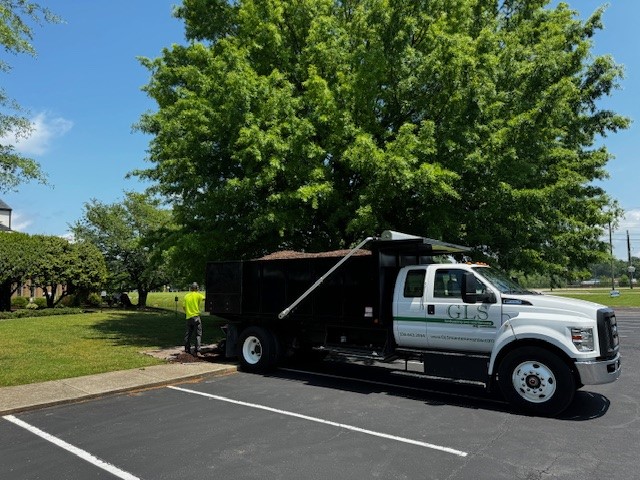
Before Mulching

Preparing for Mulch
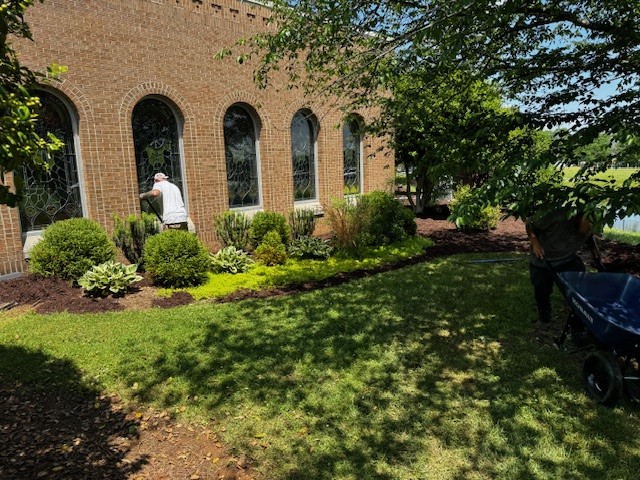
During Mulch
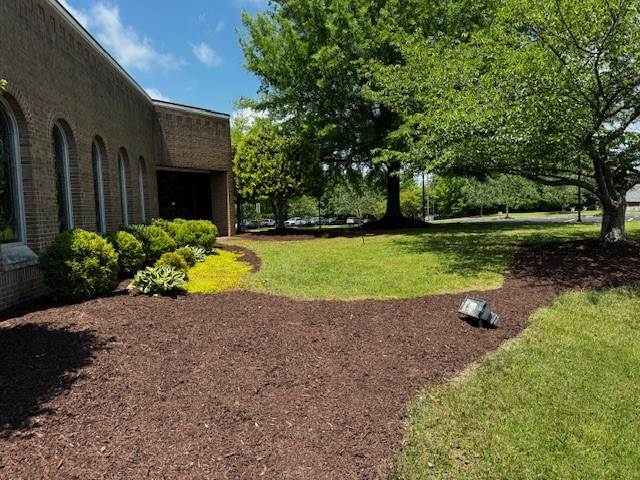
After Mulch
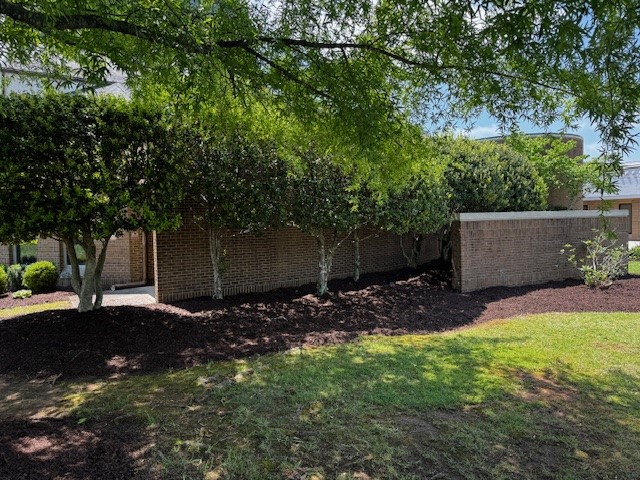
After Mulch
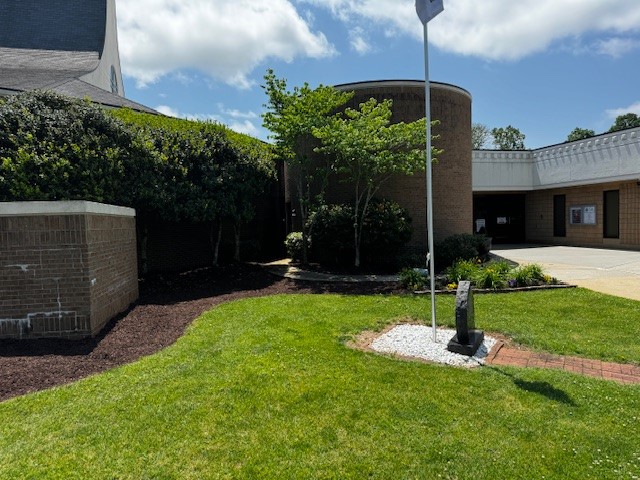
After Mulch

After Mulch
Frequently Asked Questions about Mulching
Is Mulch Suitable for All Types of Plants?
Most plants benefit from mulching, but some, like succulents, may prefer sandy or rocky soil. Always research the specific needs of your plants.
How Often Should Mulch Be Replaced?
Organic mulches should be replenished annually, while inorganic mulches can last several years. Regular inspection will help determine when it’s time for a refresh.
Can Mulch Attract Pests?
While mulch can attract beneficial insects, it can also harbor pests if applied too thickly or improperly. Using appropriate techniques can mitigate this risk.
The Future of Your Landscape with Mulching
Mulching is a powerful tool that can transform your garden from average to extraordinary. By understanding its benefits and implementing proper techniques, you can create a thriving, beautiful landscape that requires less maintenance and offers greater rewards.
Ready to get started? Contact GLS Landscaping and Maintenance to learn more about our mulching services and how we can help you achieve the garden of your dreams. Let’s grow together!
